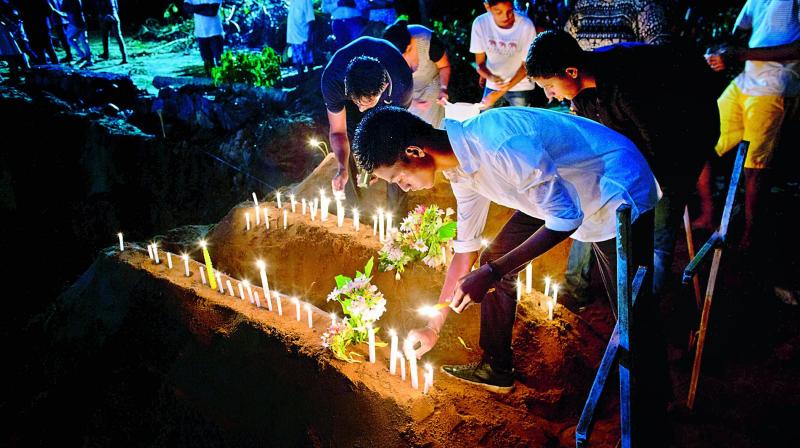Many suffer due to few fanatics

Hyderabad: Acts of terror, hate speeches, and heinous acts against other communities have hurt and not helped the Muslim community (though it is abundantly clear that this is by no means the only community that behaves in this manner). A ground-level study will show how the vast numbers of ordinary and innocent Muslims have suffered because of the acts of the fanatical few, Islamic scholars tell this reporter in the wake of the bomb blasts in Sri Lanka on Sunday.
Omar Abideen, Islamic scholar asks if there has been any study on who benefited the most after a terror attack.
“Who are the people who have become politically powerful, monetarily rich, and a conglomerate of powerful lobbies that are feared? If there had been such a study it would be clear who benefits the most from these attacks. What has the Muslim community across the world got by terror attacks?” he asks.
He says there is “confusion in young minds. Parents are not willing for their young to experiment. This leads to a tendency to ghettoise as they are not comfortable mixing around. There is an indepth feeling of being labelled.”
The community in India is struggling with issues of education, employment, improved standard of living and acceptance in society of being a part of the place that they belong.
Mr Abideen said, “Allegiance to the place where you belong is being stressed in all sermons and this is an important aspect and part of peaceful living. Whenever there is one act of terror, the waves of alienation begin and they lead to hurt and anger in those who have not indulged in any acts of violence.”
To label all terror attacks as ‘Muslim’ or ‘Islamic’ terror is totally wrong and is never done in the case of other religions or communities that also mount terrorist attacks. What is the reason for this exemption? Why is it that the terror act by a person who has a Muslim name is highlighted while others are not?
The sheer act of terror shows that the perpetrator is unIslamic. Similarly wearing a kurta pajama and sporting a big beard does not make one Muslim as the essence of Islam lies strongly in the acts of the individual and if they are harmful to the family, friends, community and country they are no way the followers of Islam, stressed the scholars.
Syed Fazil Hussain Parvez, an eminent scholar explained, “Muslims have been co-existing with other religions for long but there is a power on the other side which wants to project time and again that they are dangerous. This kind of continuous propaganda has marred the image but it has also created a will to fight back and show that Muslims are equally peace loving, tolerant and patriotic.”

